US national security adviser tours Old City tunnels with US ambassador Friedman and their Israeli counterparts
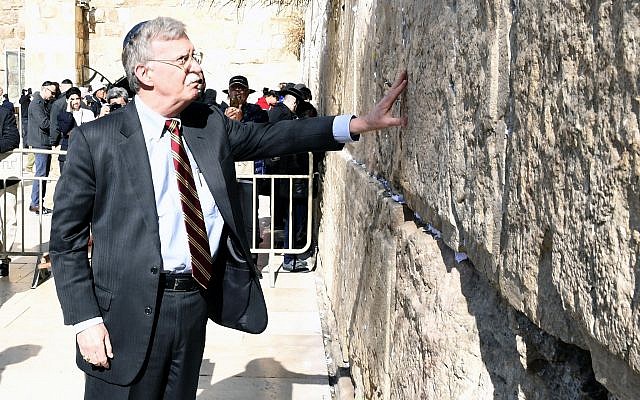
US National Security Adviser John Bolton on Sunday visited the Old City of Jerusalem, including the Western Wall tunnels, raising the ire of a senior Palestinian official.
Saeb Erekat, the secretary-general of the Palestine Liberation Organization, took to Twitter to denounce the visit, arguing that it undermines international law and will “only lead to lawlessness.”
“This behavior will not change the fact that East Jerusalem is occupied territory and the capital of the state of Palestine,” Erekat tweeted.
US Ambassador to Israel David Friedman also joined the excursion, during which the men received a guided tour of the tunnels by Soli Eliav, the chairman of the Western Wall Heritage Foundation, including a virtual reconstruction of the holy Jewish Temple that once stood at the site.
“This is a great accomplishment to uncover all of this history, from the very start of our common civilization,” Bolton wrote in the guestbook after touring the Western Wall tunnels.
The Western Wall — the holiest place where Jews can pray — is located in Jerusalem’s Old City, which the international community does not recognize as sovereign Israeli territory. Therefore, foreign dignitaries very rarely agree to be accompanied by Israeli officials when they visit the site.
In May 2017, six months after recognizing the city as Israel’s capital, Donald Trump became the first sitting US president to visit the Western Wall.
On December 6, Friedman was joined by Prime Minister Benjamin Netanyahu at the Western Wall for an event marking the one-year anniversary of Trump’s recognition of Jerusalem as Israel’s capital.
At the time, Friedman noted that it was the first time he had visited the Western Wall with Netanyahu, and said it may even be the first time the Israeli prime minister has visited the religious site with any senior US official.
“I hope it’s the first of many more such occasions,” Friedman said.
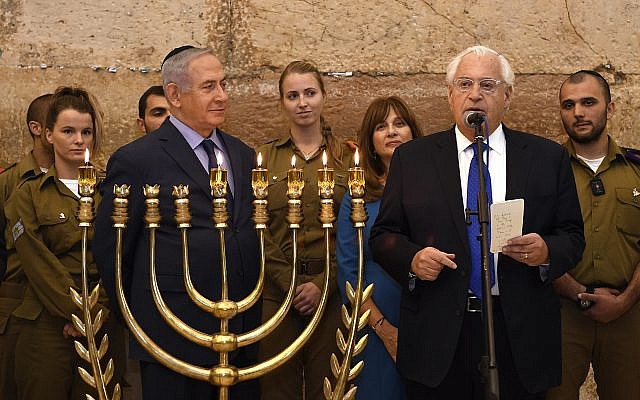
Later on Sunday, Bolton, who is in Israel to reassure the US ally of the Trump-ordered withdrawal of American troops from Syria, is scheduled to meet Netanyahu in his Jerusalem office.
“I will discuss with him efforts to stop the Iranian aggression in our region, the situation in Syria following President Trump’s decision [to pull out US troops from the country] and also following the conversation I had Friday with [Russia’s] President [Vladimir] Putin,” Netanyahu said Sunday during the weekly cabinet meeting.
“Our position is clear: we will continue to act against the military entrenchment of Iran in Syria, including during these days, and we will act against any player that will harm or try to harm Israel’s security,” the prime minister added.
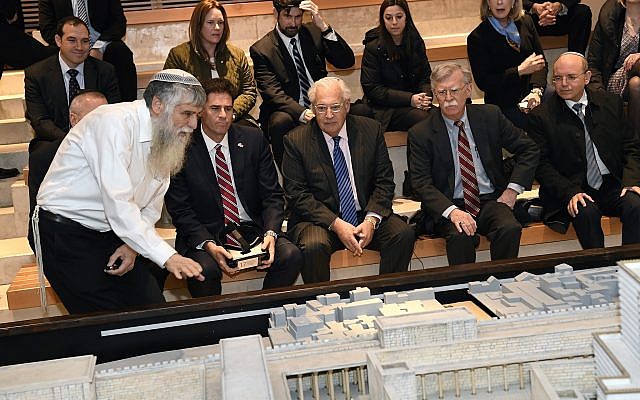
Meanwhile, Bolton on Sunday stressed that the US military withdrawal from northeastern Syria is conditioned on defeating the remnants of the Islamic State group, and Turkey assuring the safety of Kurdish fighters allied with the United States.
There is no set timetable for the pullout of American forces in northeastern Syria, he added, noting that “the timetable flows from the policy decisions that we need to implement.”
His comments marked the first public confirmation that the drawdown has been slowed, as Trump faced widespread criticism from allies and the resignation of US defense secretary Jim Mattis for a policy that was to have been conducted within weeks.
Arriving in Israel on Saturday, Bolton, a former US ambassador to the UN and one of Trump’s closest advisers on security matters, vowed that Washington would remain “very supportive” of Israeli strikes against Iranian targets in the country.
The pullout announced before Christmas was initially expected to be completed within weeks, but the timetable has slowed as the president acceded to requests from aides, allies and members of Congress.
Israeli officials have expressed alarm that a swift withdrawal of the roughly 2,000 troops could enable Iran to expand its influence and presence in Syria, wracked by a years-long civil war and Islamic State militancy.
Trump’s move has also raised fears about clearing the way for a Turkish assault on Kurdish fighters in Syria who have fought alongside American troops against IS extremists. Turkey considers the Kurdish People’s Protection Units, or YPG, a terrorist group linked to an insurgency within its own borders.
A Trump administration official told reporters traveling with Bolton that Bolton intended to discuss the pace of the drawdown, as well as American troop levels in the region. Bolton was expected to explain that some US troops based in Syria to fight IS will shift to Iraq with the same mission and that some American forces may remain at a key military outpost in al-Tanf, in southern Syria, to counter growing Iranian activity in the region.
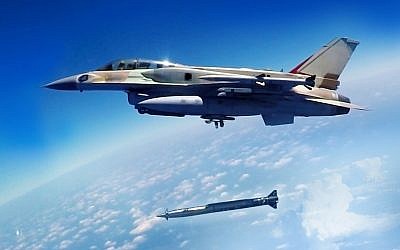
Bolton also was to convey the message that the United States will be “very supportive” of Israeli strikes against Iranian targets in Syria, according to the official, who was not authorized to publicly discuss Bolton’s plans before the meetings and spoke on condition of anonymity to preview the talks.
Netanyahu has said that the US pullout will not deter Israel from continuing to attack Iranian military interests in Syria. On Thursday, he told IDF cadets at Bar Ilan University that Israel was continuing to “act determinedly against anyone seeking to endanger us.”
Trump’s announcement about the intended troop withdrawal was greeted by surprise and condemnation from many US lawmakers and allies.
Last week, Trump sparked further consternation in Israel when he said that Iran “can do what they want” in Syria, appearing to give Tehran free rein to further entrench itself in the country, though he also said Iran was pulling its forces out of the country.
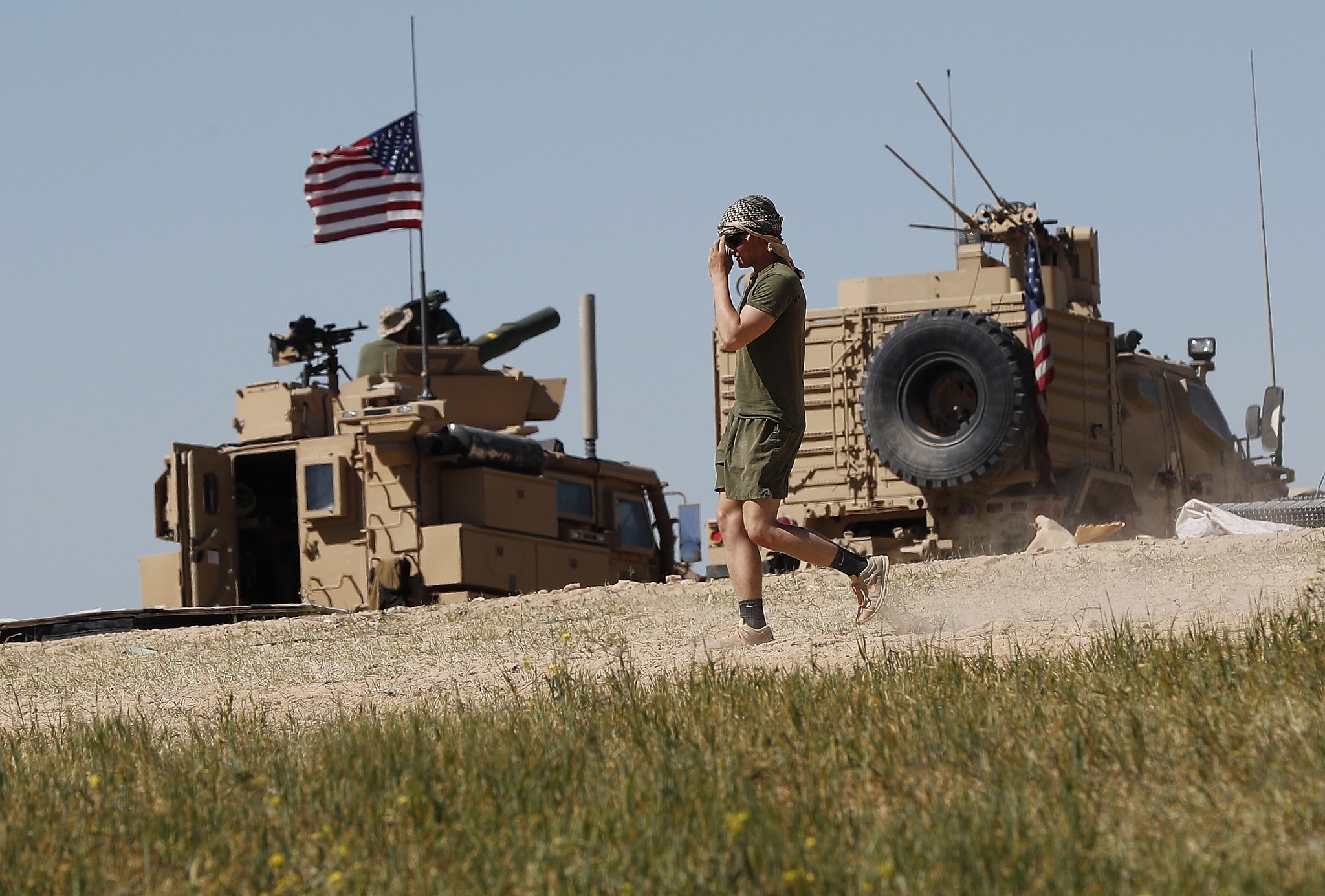
A senior Israeli official said Monday that Netanyahu had asked Trump to stagger the US withdrawal over a lengthy period of time, rather than carry out an immediate pullout. The New York Times then reported that Trump has agreed to allow the US military to gradually pull troops out of Syria over a period of about four months, rather than the rapid withdrawal he had initially indicated when announcing the measure.
US Secretary of State Mike Pompeo is following Bolton to the Middle East this coming week for an eight-country tour of Arab allies to shore up support for the administration’s partners in the region.
While in Israel, Bolton also plans to encourage officials to take a tougher stance against Chinese electronics manufacturers ZTE and Huawei. The US has expressed concerns about potential cyber-penetration by those companies.
Joining Bolton in Turkey, the next stop after his Israel visit, will be the chairman of the Joint Chiefs of Staff, Gen. Joseph Dunford. In meetings with Turkey’s president, Recep Tayyip Erdogan, and other officials, they are expected to warn against an offensive targeting the Kurdish fighters in Syria.
AP and Times of Israel staff contributed to this report.



yamit82 Said:
So far he has been true to his word so far as it is in his power to do. Part of his success is his style.
@ honeybee:
What does Tex say about you two timing him?
@ Bear Klein:
The minute he descended the escalator Trump was my man, my only man.
@ yamit82:
You don’t understand him. Much to clever for you.
@ Bear Klein:
Not a chance unless he screws up good and or the economy crashes….or the laws of unintended consequeces turns against him.
@ yamit82:
Concur! By the way I remember when he was running you went to bat for him long before I got on board. In fact you argued he could win and I was much more skeptical. Just letting you know you were correct!
Curious if the Never Trumpers will find a viable to run against him in the GOP primary?
@ Bear Klein:
I have been a long and consistent supporter of the Trump agenda and Trump as well with many caveats but he is too flakey to put absolute trust and confidence in…
Whatever short comings the Trump may have as we sometimes point out he and his administration are far friendlier to Israel than all prior US Administrations.